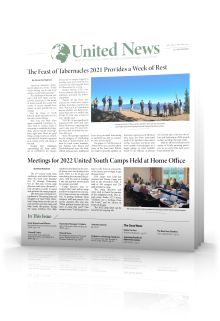Debt—A Blessing or a Curse?
The proper use of debt will allow the stretching out of a repayment plan for the opportunity to have something today. However, that opportunity has a cost to the user—called interest. This interest cost on unpaid credit card debt can reach nearly 25 percent per year on unpaid balances, which makes it very hard for many to get out of debt.
Before, during and after taking on debt, it is important for us all to have a good awareness of our overall financial health. It is important to learn how to organize earnings, income, spending and expenses. One way to do this is by filling out a personal cash flow statement or detailed household budgeting worksheet, which lists your monthly and annual income sources and total expenses.
There are many cash flow or household budgeting worksheets available online at no cost. Here is one you may find helpful: thrivent.com/literature/33312X.pdf.
Your cost of living is reflected on this worksheet and should include the expenses for your home, utilities, transportation, heath, food, insurance, entertainment and giving. These easy worksheets enable us to better see our spending patterns, making it easier to find opportunities to save and improve our personal money management.
Ideally, it is best to manage our cost of living to fit what we are willing or able to spend. Our choice of lifestyle has much to do with how much we spend every day. We should be honest with ourselves, and our wallets, when considering our lifestyle. What are the basic needs in life? Being able to define and know the difference between a want and a basic need helps us all live within our earnings ability.
The prudent understand where they are going, but fools deceive themselves.
Proverbs 14:8 (New Living Translation)
When we see our cash flow worksheets filled in, we may have to make hard choices to get back to a sustainable financial path. It might be necessary to reduce our standard of living to gain control of spending and debt. Sometimes we give up what some things that we want in order to stay financially stable.
Unfortunately, this may be a bitter reality for those who have lost employment, income, homes or may have enormous medical bills. Many play a shell game with credit cards, using one to pay for another. Some people in deep debt want to take withdrawals from a long-term savings plans with penalties to pay for the short-term debt.
For those headed here or have already come to this low point in financial life, seek assistance before retirement or emergency savings accounts are wiped out. When debt has become an out-of-control monster with missed payments, collectors calling and credit being denied or unavailable, then a prescription for financial survival is needed.
Try this exercise to get started:
1. Create a cash flow or household budgeting worksheet.
2. Make a list of debts and whom they are owed to.
3. Find out the annual percentage rate of interest for every debt and add to the list.
4. Contact a local consumer credit counseling service or something similar and get no-cost debt counseling. These professionals can evaluate individual situations when it comes to debt consolidation or in some cases, debt elimination.
Using debt is good as long as it is used in a wise and appropriate manner. Having an ongoing personal cash flow or household budgeting worksheet is the first step in having financial self-control and can help us understand our wants and needs.
For more information, please contact:
Email: plannedgiving@ucg.org
Online: ucg.org/planned-giving.


